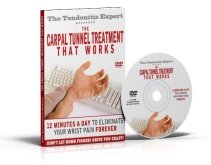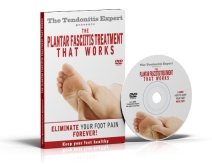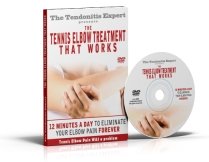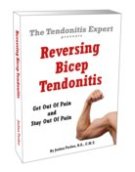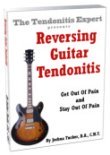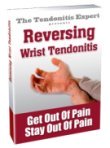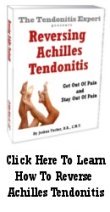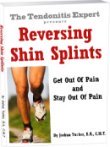Rest and Relaxation
Naps Won't Cure Your Tendonitis
There is a distinct difference between Rest and Relaxation.
This page really should be Rest Vs. Relaxation because they are two entirely different creatures.
Just because you Rest does not mean that you Relax.
Meaning, you may be asleep, but your muscles stay tight and tense.
Perhaps you have Tennis Elbow or Knee Tendonitis.
The following applies to all Tendonitis, but let's use the example of Carpal Tunnel Syndrome.
You've had a long day at work, mousing typing away on the keyboard. (or Knitting, or Sewing, or Cutting Hair, or being a checker or a barista or mechanic, etc)

You think you have Carpal Tunnel because you're hands hurt all day, your fingers go numb, and this keeps getting worse and worse.
You're working at the keyboard wishing the pain would go away.
Guess what's happening?
The muscles of your upper back, neck, shoulder, forearm, wrist and hand are WAY too tight. And they have been for a long time.
You keep working and hurting, they keep getting tighter and tighter.
Your nervous system does not like to feel pain. When it does, it protects you the one way it knows how to do. It tightens your muscles up, to 'guard' and protect you from future 'injury'.
Tight muscles are not relaxed. Tight muscles are clenching, working, and anxious.
You get home from work and throw yourself down on the couch in front of the T.V.
"I just need to rest until the pain goes away," you say to yourself.
It used to work. Pain would go away once you rested enough, but it kept coming back, staying longer, and reappearing sooner.
Wouldn't it be great if resting on the couch, or while sleeping at night, did actually relax your muscles and leave you refreshed and loose like you used to be?
It doesn't work that way.
I bet you always considered Rest and Relaxation to be the same thing.
Nope. Not even a little bit.
Would you like to know the difference between Rest and Relaxation?
To Relax Your Muscles means that the tone, or tightness, of your muscles would lessen, leaving them softer and looser and calmer.
To Rest Your Muscles means that you are actively, intentionally not using your muscles to do work. No typing, no lifting, no walking, no standing up.
Short Term: Exhausted, you get a whole 8 hours of sleep. You wake up and feel pretty good. You reach for your cup of coffee and notice that you have pain and other unhappiness in your hand/wrist/forearm.
How can that be? You Rested all night?!?
Long Term: You can rest your muscles by taking a couple months off of work or play, and the pain would possibly subside.
But what happens when you return to that activity that you blame the pain for?
You start hurting again.
How can that be? You Rested for Months?!?
Because even though you rested, your muscles did not Relax.
Muscles and the nervous system have this funny way of getting tight and then staying tight. Tight literally becomes the new normal.
So Resting for the night, or taking a few months off because you are hurting, will not necessarily cause you Relaxation.
It will a little bit, but do get that this is a vital concept that helps explain why you are still hurting.
Resting will not Relax your muscles and the nervous system that is controlling and watching out for your muscles.
Why Doesn't Rest Cause Relaxation?
Don't get me wrong. Rest can cause relaxation.
But in the realm of injury and Tendonitis related issues, Rest does not cause your tight muscles to Relax.
Why?
- The longer muscles are tight, the more the nervous system resets that tightness to be the new 'normal'.
- Tightness is part of the Pain Causing Dynamic and it is there to protect an injury (either real or perceived).
When you go to sleep at night, you want Rest and Relaxation. Specifically for healing your injury and getting out of pain, you want Relaxation.
You still have an injury, and it is the muscle's job to be tight to protect you. When you sleep, it does its job and stays tight.
How Do You Relax Muscles That Are Guarding An Injury?
1. Be Aware
Knowledge is power.
In this context, that means the more you know, and the more you are aware, about your body, how it works, and what it is telling you, the better off you can be.
The way the nervous system works, it sort of stops telling you about your problems. It tries to take care of everything in the background while you are busy living your life.
People lose track of the subtle sensations of their body. Specifically for this conversation, we lose track of whether our muscles are tight, or loose. Tense, or relaxed.
Not only do we not know, but we can literally get to a point where we can't FEEL whether we are tight or not. Which also looks like feeling 'too tight' as 'normal and not a problem'.
Until we start to have severe pain and are forced to deal with it.
- Check in with your yourself, and your body. Literally ask your arm, your leg, your forearm, if it is tight or not. Keep asking. Massage your leg, your forearm, and see what you feel, both with your fingers and your limb.
Keep asking.
2. Tell your muscles to relax
Sound simple?
It is.
- While watching tv, or going to sleep, or sitting at work, or driving, send the command to your muscles to relax. Make them relax.
3. Ice
Inflammation causes pain. Pain makes the nervous system tighten muscles.
Ice gets inflammation out.
- Ice dip. Ice Massage. See How To Reduce Inflammation.
4. Massage
Whether it's self massage, professional massage, or bribing your child and/or boyfriend to just rub you for a while...it's incredibly good for you.
Massage squeezes the sponge. This forces old stuff out and new stuff in. Tight muscles like 'new stuff'. (It's a technical term, I know.)
It may take a while, and repetition for your nervous system to get the clue, at which point it will relax significantly.
Return to the top of this Rest and Relaxation page.
Go to the Rest page.
Go to the TendonitisExpert.com homepage.
| Share Your Story
|
